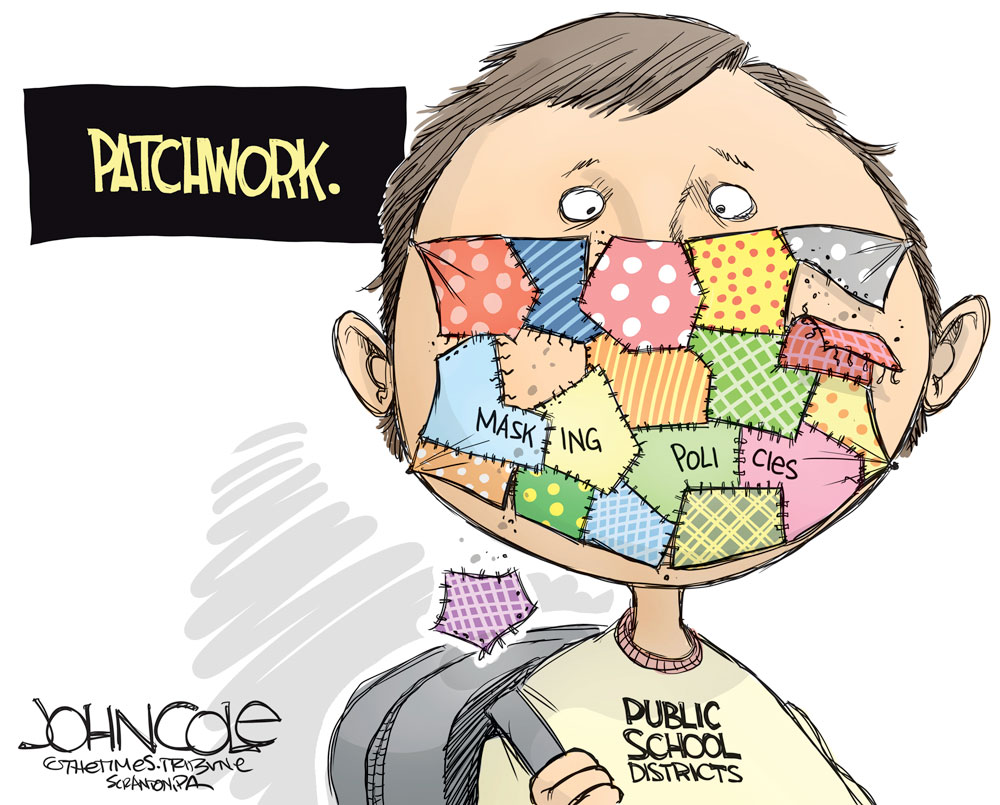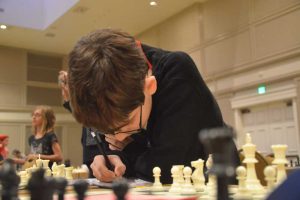
Today at the Editor’s glance: The Bunnell City Commission meets at 6 p.m. in a budget workshop and at 7 p.m. for its regular bi-monthly meeting, both at City Hall, 201 West Moody Boulevard. The Health Department will provide an update on the ongoing Covid crisis. The commission is expected to approve an agreement with county government enabling the Bunnell commission to once again use the meeting chambers at the Government Services Building, now that the city must vacate its leaky City Hall. The commission will also discuss the way it intends to evaluate City Manager Alvin Jackson. Those evaluations are due at the beginning of October. The full agenda is here. In court: It’s trial week for felony court and Circuit Judge Terence Perkins, with trials scheduled for Roy Carlisi, Gerry Greene, Richard Russell and Andre Watkins. The tropics are calm, but the heat index today will range between 102 and 106. Sacco and Vanzetti Memorial Day: Nicola Sacco and Bartolomeo Vanzetti were executed by electrocution on this day in 1927 in the culmination of one of the great miscarriages of justice in the nation’s history. They’d been falsely accused of a robbery in which a guard was killed, though evidence would later prove they’d been elsewhere. Their ethnicity was catnip to the jury’s prejudices.
Vaccination and testing schedule for Aug. 23-29: The Florida Department of Health in Flagler County is moving its Covid-19 testing operations to the Flagler County Fairgrounds, 150 Sawgrass Rd. in Bunnell. The site will be open weekdays between 8 a.m. and 12 noon to accommodate testing for:
- Flagler County school district students, faculty and school staff. No appointments are necessary.
- The general public (those not employed by or attending local schools) by appointment only. Reservations can be made by calling 386-437-7350 ext. 0.
Several factors influenced the decision for earlier testing hours and the return to Cattleman’s Hall, including afternoon heat, increased demand for testing and adjustments requested by the department’s case investigation and contact tracing team. Note: On Friday, Aug. 27, testing and vaccination will be at 301 Dr. Carter Blvd. from 8 a.m. to noon because of a previously scheduled event at the Fairgrounds. As a reminder, the health department does not offer testing for travel verification. Vaccinations will continue to be offered at the main health department location, 301 Dr. Carter Blvd. in Bunnell. The Pfizer clinic will be open three afternoons a week — Monday, Tuesday and Wednesday evenings from 3:30 to 6:00 p.m. for the rest of August, and into September. Appointments are preferred; Walk-ins are welcome.
Please note that the health department is awaiting additional guidance for the administration of Pfizer and Moderna booster doses. CVS, Walgreens, Publix and Walmart are currently administering boosters to immuno-compromised individuals. DOH-Flagler will add these vaccinations to its operation at the Flagler County Fairgrounds next month. Details will be shared after plans are finalized. For more information about Covid-19 vaccination and testing locally, please visit flagler.floridahealth.gov. For testing and vaccination appointments, please call 386-437-7350 ext. 0 weekdays between 8 a.m. and 4:30 p.m.
![]()
The Live Calendar is a compendium of local and regional political, civic and cultural events. You can input your own calendar events directly onto the site as you wish them to appear (pending approval of course). To include your event in the Live Calendar, please fill out this form.
January 2026
Temple Beth Shalom Blessing of the Pets
Nar-Anon Family Group
Palm Coast Charter Review Committee Meeting
Bunnell City Commission Meeting
Palm Coast City Council Workshop
Flagler Beach United Methodist Church Food Pantry
Community Preparedness Workshop
Flagler County School Board Information Workshop
Flagler County Affordable Housing Committee Meeting
Weekly Chess Club for Teens, Ages 10-18, at the Flagler County Public Library
Book Dragons, the Kids’ Book Club, at Flagler Beach Public Library
Budgeting by Values: A Virtual Class to Learn Budgeting Skills
NAACP Flagler Branch General Membership Meeting
Flagler County School Board Meeting
Random Acts of Insanity Standup Comedy
For the full calendar, go here.

“In summary, the typical educated Roman of this age was orderly, conservative, loyal, sober, reverent, tenacious, severe, practical. He enjoyed discipline, and would have no nonsense about liberty. He obeyed as a training for command. He took it for granted that the government had a right to inquire into his morals as well as his income, and to value him purely according to his services to the state. He distrusted individuality and genius. He had none of the charm, vivacity, and unstable fluency of the Attic Greek. He admired character and will as the Greek admired freedom and intellect; and organization was his forte. He lacked imagination, even to make a mythology of his own. He could with some effort love beauty, but he could seldom create it. He had no use for pure science, and was suspicious of philosophy as a devilish dissolvent of ancient beliefs and ways. He could not, for the life of him, understand Plato, or Archimedes, or Christ. He could only rule the world.”
–Will Durant, from “Caesar and Christ: The Story of Civilization, Vol. III” (1944).
![]()











































Ray W. says
The author, Will Durant, writes of a prototypical Roman citizen living during the early Imperial Age of Rome, which evolved to power during the long decline of Republican Senatorial Rome. As Durant describes it, such neo-Romans no longer revered philosophy, the arts, the form of government that is now known as liberal democracy, or an education that is now known as a “liberal arts” of the type established in the Greek academic tradition during the age of Socrates and Plato and, later, Aristotle, now known as the “Trivium” (the “Quadrivium” entered academia during the earliest phases of the Renaissance that succeeded the Dark Ages).
Can it be said that the neo-Roman of Durant’s description, living in the era of the Roman Empire, traded Senatorial liberal democracy for Caesarian authoritarian security and, in the end, lost both liberty and security?
Edward Gibbon published his first volume of the History of the Decline and Fall of the Roman Empire in 1776. As a young member of Parliament, Gibbon, in his first visit to Rome, was surprised to see Italian shepherds keeping flocks of sheep in buildings abutting ancient Rome’s long-abandoned Senate building. He asked himself how the greatest democracy and empire in history could come to this state. His studious examination of books, documents, records, etc., contained in various libraries throughout Europe yielded his two-volume history, which became required reading material during the American Revolutionary age.
Two millennium after the time of Durant’s prototypical Roman, Mussolini sought to glorify the Roman Imperial Age through a revival of Italian power, initially through colonial conquest of Libya and Ethiopia. The symbol adopted by Mussolini was the “fasces”, a bundle of birch rods, with an axe head affixed to one, representing the government’s power to execute. Mussolini, wielding all political power in Italy, held the fasces, which represented total political power, in all its possible forms. Each individual birch rod represented a different political power. To wield all power meant to hold all the birch rods bound into one fasces in one’s hand. To the Roman mind, one birch rod was easy to break, but a bundle of rods could not easily be broken. During Republican Senatorial Rome, fasces were distributed to various executive officials, with the largest number of fasces given to magistrates titled “dictators”, who received 24 fasces. Magistrate consuls received 12. Proconsuls: 11. Praetors: six. Other lesser magistrates also received fasces, but fewer in number. Obviously, the modern term, fascism, derives from fasces.
Our founding fathers sought to split all political power between each of three co-equal branches of government, so that no one person could ever wield all political power, i.e., hold the bundle of sticks (fasces), for an indeterminate period of time. Our founding fathers hoped the Constitution would foster public virtue, but they greatly feared mob rule as dangerous to democracy, as it has so recently been demonstrated in so many local jurisdictions by mobs of anti-maskers who attempt to shout down elected officials or, more violently and desperately, on January 6, 2021, when a mob incited by the latest version of an American Caesar, entered the Capital in an attempt to murder certain government officials and stop the democratic process of certifying the Electoral College vote tally. Are these people self-described patriots? Are they, in Wittgenstein’s definition, wandering through life fooling themselves? To Wittgenstein, one of the most difficult things in life is to not fool oneself.
As I recall my history, during the time of Caesars, when Rome faced serious threat, the Senate gave fasces to the Caesars, symbolizing the transfer of all governmental power to the Caesar, but only for a period of time.
About six or seven years ago, I was driving to a social function in DeLand with Steve Gosney, an old friend from before our time together at the Public Defender’s Office. Serious discussion coming naturally to both of us, we spent the travel time discussing philosophy and presidential powers. Steve asked which presidential act struck me as the most important in American history. I replied: Washington voluntarily relinquishing power after two presidential terms. Steve instantly agreed, saying he had long considered that act as the most important presidential precedent. To me, since the original Constitutional had no limits on presidential administrations, the informal precedent set by Washington was extremely important to the early American mind. Only after FDR earned four electoral college victories did we instill the modern 10-year term limit. Both the Chinese and Russian constitutions have recently been modified to permit permanent political power to inhere in one person.
It should be noted that General Washington also retired from the Continental Army once America had won independence from King George, III. A quote is attributed to Washington who, when asked to become a permanent president, declined the offer. I paraphrase his reply: I did not lead a revolution against King George, the third, in order to become King George, the first.
Some argue that the Roman General Cincinnatus inspired Washington. Early in the Republican age of the Roman Senate (458 B.C.), Cincinnatus, then a farmer, left the plow to receive a transfer of power from the Senate to lead an army to relieve a Roman garrison besieged on Rome’s border by a foreign force. In 15 days, Cincinnatus achieved his quest and immediately resigned to return to his farm. Years later, a Roman leader threatened Senate rule and Cincinnatus again was called to quell the threat, this one constituting a domestic insurgency. Succeeding in three weeks, he again immediately relinquished power and returned to his farm. Shortly after the Revolution, many of Washington’s officers formed the Cincinnatus, a military club, so to speak, to privately further the interests of the newly-retired officers and foster civic virtue. Cincinnati, Ohio, is named after the famous Roman farmer and general.
There are many forms of civic virtue. Serving on a Petit Jury is one. Serving a six-month term on a Grand Jury is another. Serving in the military or as a law enforcement officer or prosecutor, too. Same for public defenders, who work for the elected constitutional office of Public Defender. A multitude of other forms of public service can be said to qualify as a civic virtue, including that of city commissioner and county council member.
Can it be argued that the highest form of civic virtue is to accept federal presidential power when asked to do so by citizens and, later, to voluntarily relinquish federal presidential power when asked to do so by the very same citizens?
Steven N. Gosney says
Always love our discussions and your insights, Ray! Your information about the source of fascism is quite interesting — I had not heard that before (are you holding out on me?) As to the separation of powers, I think our founders did not anticipate 1) mass media, 2) the administrative state (such as Ike referred to in his warnings) and 3) the corporate control of information through a few top down monopolies.